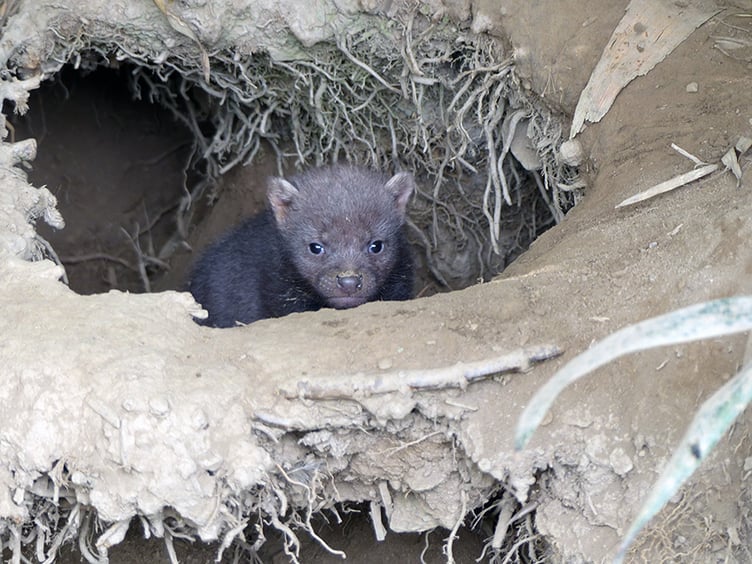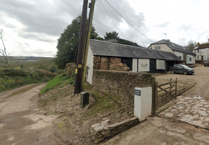HOT dogs have become more available for visitors to Exmoor Zoo with the recent birth of South American bush dog triplets.
The youngsters, rarely seen in the wild, have been soaking up the recent heatwave, and have beome an instant hit with zoo visitors.
The pups were born a month ago but their proud parents only this week started letting them emerge from their burrow system to have a look at the world.
Bush dogs inhabit the depths of the Amazon rainforest and are seldom seen, seldom heard, and often only noticed because of their smell.
An unusual smell much like vinegar gives them their alternative name ‘the vinegar dog’, which can be obvious to visitors on a warm day at the zoo.
Zoo co-owner Danny Reynolds said: “Our triplets were born to a very attentive mum who, along with her mate and their previous two offspring, have dug extensive tunnels down under the dense bamboo stands in their enclosure.
“This has not only kept them dry but also cool during the heatwave.”
Mr Reynolds said there were fewer than 200 individuals in the breeding programme throughout Europe.
Because they were a ‘pack’ species, groups of three or more generations often occurred in the wild with 10 to 20 individuals living together.
A small compact dog adapted for hunting through the dense rainforest undergrowth, they often chase prey such as agouti, paca, and even prey as big as tapir - despite their size - into water.
Watch the video:
The cute bush babies are winning hearts . Video: Exmoor Zoo
Mr Reynolds said: “Our bush dog parents came to the zoo in the spring of 2019 and they have timed their litter to perfection in the beautiful dry weather of this Exmoor summer.
“The puppies, all with their eyes now open, will begin to be allowed to explore their home.
“They can often be seen at the top of the burrow system, smelling, listening, and daring each other to step outside, at least until their parents scold them and take them down below into safety.”
Mr Reynolds said only seven other UK zoos looked after the species, which meant they were considered ‘a little bit special’.
“It is a privilege to be able to breed these wonderful little dogs to help maintain their captive population,” he said.





Comments
This article has no comments yet. Be the first to leave a comment.